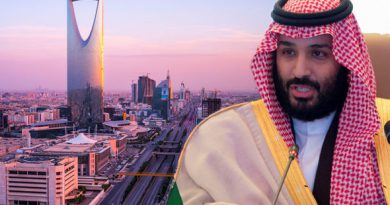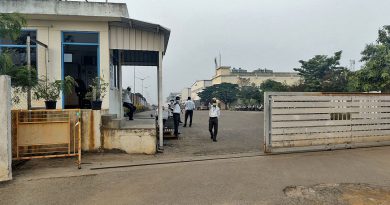OPINION: Where would Saudi Arabia be without Mohammed bin Salman?
by Amjad Al-Munif
What Crown Prince Mohammed bin Salman has achieved for the Kingdom is nothing short of extraordinary and exciting…
Upon observing the development process in countries all around the world where major leaps have been achieved, it becomes clear that creating significant change and transformation does not happen overnight, but rather it takes decades. There is no denying that what Crown Prince Mohammed bin Salman has achieved for the Kingdom is nothing short of extraordinary and exciting. Saudi Arabia has taken giant developmental leaps all across the board.
In this context, I would like to highlight the importance of keeping track of the Crown Prince’s interviews and speeches in order to understand how well thought-out and carefully constructed his development methodology is. We must all take pride in the rapid progress that is being achieved and witness how the dreams we barely entertained years ago have turned into reality. Accordingly, allow me to repeat what the Crown Prince said at the Future Investment Initiative (FII) forum, “the numbers speak for themselves.”
In an interview with Turki al-Dakhil in 2016, His Highness pointed out that Saudi Arabia has two major strong points: its Arab and Islamic depth, and its investment strength. He also shed light on many achievements and future plans in a wide range of areas including investment in tourism, localization of the military industry, development of the government apparatus, the Hajj and Umrah program, project management and follow-up, as well as the Saudi human resources strategy, in addition to many others.
With reference to another interview with Dawood al-Shirian in 2017, His Highness has made many promises and backed them up by exact figures. No one can deny how these promises have been successfully fulfilled, especially with regard to non-oil revenues, local content, housing, the Public Investment Fund, the Citizen Account Program, the fight against corruption, and others.
A few days ago, His Highness Prince Mohammed bin Salman expressed his appreciation to the Custodian of the Two Holy Mosques King Salman bin Abdulaziz, for what was included in his speech to the Shura Council, stressing that the Kingdom was able to make unprecedented achievements in a very short period of time of less than four years.
Among them are the following:
In 2016, non-oil GDP stood at 1.8 trillion Saudi riyal, with plans to double this number at a rapid pace. The outcome of these plans has been accelerated growth over the past three years. This growth was estimated at 1.3 percent in 2017, 2.2 percent in 2018, 3.3 percent in 2019, and more than four percent in the fourth quarter of 2019, despite some economic challenges.
During 2018, the unemployment rate was approximately 13 percent. However, after a series of reforms that increased the efficiency of government entities, investments of the Public Investment Fund, programs and other government initiatives, the unemployment rate has dropped to 11.8 percent at the beginning of 2020. By the end of 2020, Saudi Arabia will be among the least affected countries by the coronavirus pandemic from the G20 countries that witnessed a surge in unemployment rates reaching up to 20 percent and more. The programs and policies put in place by the government will achieve a decrease in the rate of unemployment to seven percent by 2030.
Initially, when the comprehensive economic reform program was being drafted, the Vision 2030 Housing Realization Program committed to increasing the percentage of Saudi household home ownership rates by 5 percent within four years. Back then, the percentage was approximately 47 percent, which means it was supposed to reach 52 percent in 2020, a percentage that is considered highly favorable by international standards. Today, however, we have reached 60 percent, thus exceeding the target by 8 percent.
The size of the Public Investment Fund has doubled from 560 billion riyal to more than 1.3 trillion riyal, and the fund’s assets exceeded 7 trillion riyal. When the fund was established, the rate of return on investments was no more than 2 percent, at best. Today, the Public Investment Fund achieves no less than 7 percent with investments whose returns exceeded 70 percent, and others that even exceeded 140 percent.
The tourism sector’s contribution to GDP has increased to 3.6 percent in 2018. The number of events held in the Kingdom has reached up to 3,400 events in 2019, which contributed to raising spending rates inside the Kingdom for citizens, residents, visitors, and tourists.
The percentage of citizens practicing sports increased from 13 percent in 2015 to 19 percent in 2019. The sector’s contribution to GDP grew from 2.4 billion riyal in 2016 to 6.5 billion riyal in 2018, which is an increase of 170 percent in just two years.
Saudi Arabia has achieved first place in digital competitiveness at the level of the G20 countries in the past three years and has jumped 40 places in the digital infrastructure for communications and information technology.
In this exceptional journey of success, transformation and reform, many achievements and figures can be cited as proof of this historic undertaking, especially when we examine the progress achieved due to the Saudi Vision 2030, and its young godfather.
Finally, I would like to quote Crown Prince Mohammed bin Salman, “We are talking today about a vision, and this vision is a road map for our objectives in the fields of development and economy.” Therefore, my answer to the question posed in the title of this article would be; without the efforts of His Highness Mohammed bin Salman, we would have remained stuck in the same place, with no major achievements, roadmap or plans for a better future.
Article first published in Arabic on Al-Riyadh Newspaper. It’s translated in English by Al-Arabiya News Agency.
Amjad Almunif is a Saudi columnist and blogger who writes for al-Riyadh daily. He is also the managing director of SMT Studies Center and executive director of Elleven for communication and public relations. He tweets @Amjad_Almunif.



